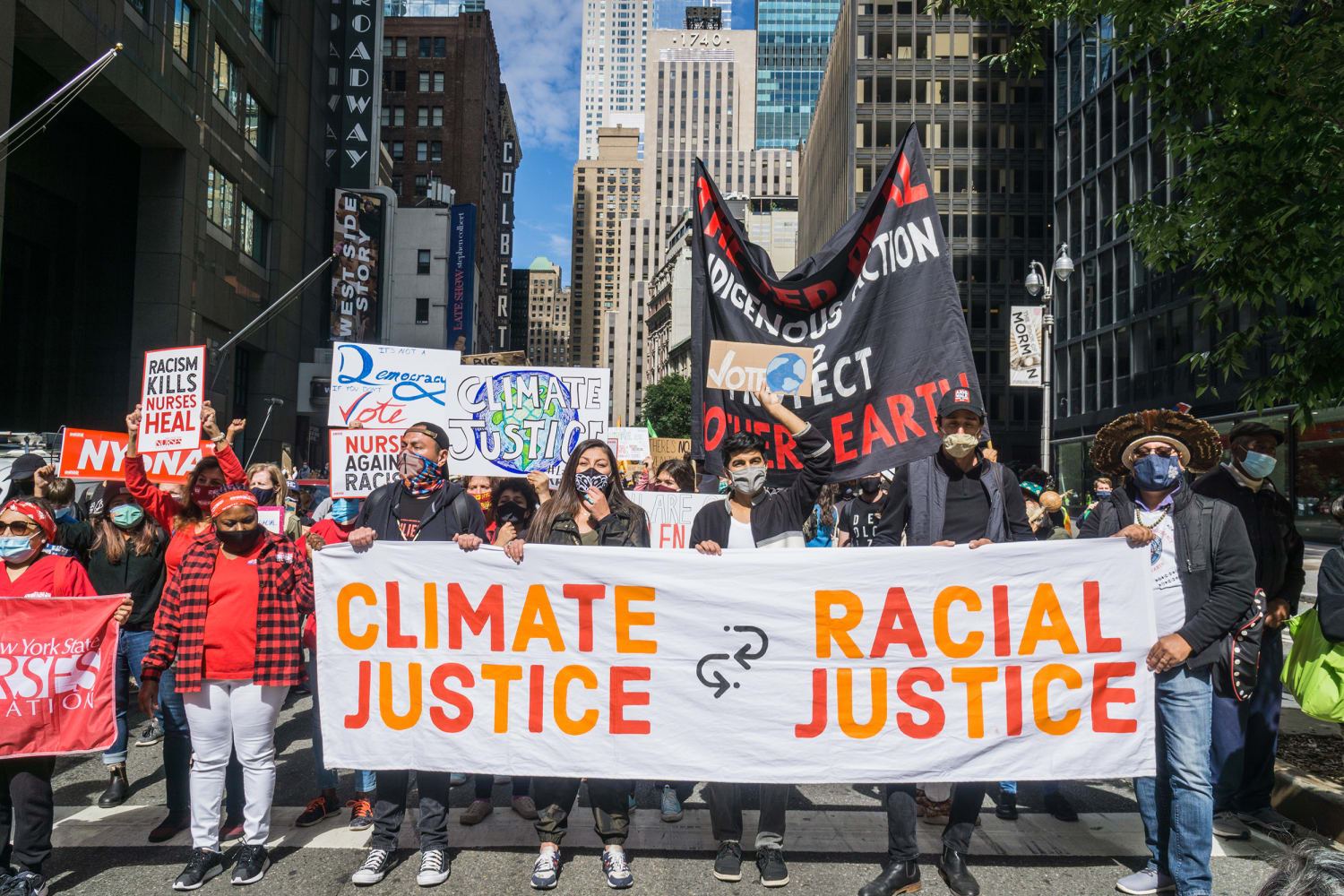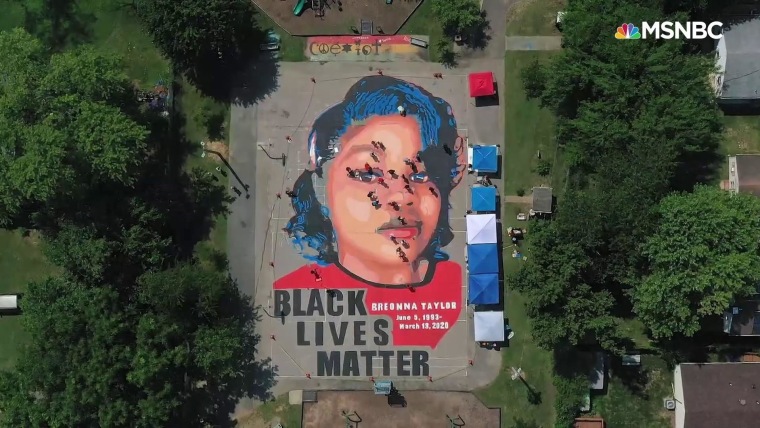In the late 1980s, Peggy Shepard helped lead the charge against noxious emissions wafting from a sewage plant in her Harlem neighborhood, a fight that forced New York City to enact fixes and spurred her work as an environmental justice and health advocate for the past three decades.
But while Shepard, a co-founder of the group WE ACT for Environmental Justice, has collaborated with large national environmental organizations and been invited to sit on their boards, she still stands out among many of her peers in the green movement.
“These organizations are generally predominantly white. Their boards are generally older white men,” said Shepard, who is Black. “They’re realizing that not only do those boards have to get younger, they have to get more diverse.”
A report released Wednesday by Green 2.0, an independent advocacy campaign that tracks racial and gender diversity within the environmental movement, found that while strides have been made in recent years, it has been at an incremental pace that begs for “improvement at all levels,” said Andrés Jimenez, the campaign’s executive director.
New data from about 40 of the largest nonprofit environmental organizations in the country and the top 40 foundations and grant providers show that, on average, these groups added six people of color and eight women to their full-time staff from 2017 to 2020, added two people of color and two women to their senior staff in that time, and one person of color and one woman to their boards since 2017.
Diversity advocates acknowledge that such large legacy groups, which have staffing numbers in the hundreds and budgets worth millions of dollars, may be in the best position to bring attention to issues such as protecting national parks and endangered species. But those groups have not historically been in tune with problems facing inner cities and communities of color, places that are disproportionately burdened by pollution, according to the federal government’s research.
The latest numbers demonstrate a noticeable shift, but still highlight that the organizations and foundations remain overwhelmingly white — even as many of those groups released statements last year calling for racial justice and recognizing how despite their progressive ideals, they failed to react to systemic disparities that people of color have been subjected to in the United States.
Some organizations reported having no people of color either on their boards or in senior levels, including Oceana, an ocean conservation nonprofit, and the BlueGreen Alliance, which works with labor unions to promote clean jobs and infrastructure. Neither group immediately responded to requests for comment.
“The numbers don’t lie. Organizations can’t escape the actual numbers that we put into this report,” Jimenez said.
Most of the environmental groups named in Green 2.0’s 2020 “Transparency Report Card” willingly shared diversity numbers of their staff and boards, Jimenez added, although there were a handful that had participated in past years that declined to provide information for last year or gave only partial numbers.
For instance, the National Fish and Wildlife Foundation, a government-backed agency that was chartered by Congress, provided no data on the racial and gender makeup of its board, although it says it has increased the number of people of color and women in its senior staff and among employees. The foundation did not immediately respond to a request for comment.
The Natural Resources Defense Council, whose board of trustees includes the actors Leonardo DiCaprio, Julia Louis-Dreyfus and Robert Redford, released the racial and gender makeup of its board in 2017, 2018 and 2020, but did not do so in 2019. Its hiring of people of color and women in senior staff roles and among employees did increase from 2017 to 2020, according to figures the council provided to the Green 2.0 report.
A review by NBC News of the council’s staff and board makeup shows that while half of its leadership of 10 are people of color, about one-fifth of its board of nearly three dozen members is nonwhite.
Troy Riddle, who in August became the organization’s first chief diversity, equity and inclusion officer, said the council next month will begin formalizing a strategic plan regarding its diversity, equity and inclusion that would improve its operations, while also keeping the principles of environmental justice and helping disenfranchised groups at the forefront.
“People have said in the past that [the Natural Resources Defense Council] gets all of this money, has all of this power, and we don’t have the people who are impacted at the table,” Riddle said. “But I can certainly say that’s not how we’re doing business today.”
Jimenez said he was disappointed that most of the foundations and grant providers cited in the Green 2.0 report declined to provide any information or only partial data about their staffing and boards in 2020, even though some of them made public statements in the wake of nationwide protests against institutional racism following the death of George Floyd or spoke out in favor of environmental justice initiatives.
“The importance of data transparency can not be overstated,” the report says. “It is an important step that allows and pushes each organization to self-assess where they are making progress and identify areas they still need to improve.”
‘I am deeply sorry’
One of the most extensive acknowledgments from a major environmental group about its role in historic racism came last summer from the Sierra Club, the nation’s oldest conservation group.
Executive Director Michael Brune said in a statement that its club founder, the renowned naturalist John Muir, “was not immune to the racism peddled by many in the early conservation movement” and “made derogatory comments about Black people and Indigenous peoples that drew on deeply harmful racist stereotypes, though his views evolved later in his life.”
“For all the harms the Sierra Club has caused, and continues to cause, to Black people, Indigenous people, and other people of color, I am deeply sorry,” Brune said, adding that the group would redesign its leadership with people of color “making top-level organizational decisions” and transfer more money to invest in its staff of color and environmental justice issues.
A review by NBC News of the Sierra Club’s leadership found people of color make up about half of an interim executive steering committee and about one-fourth of its 15-member board of directors.
Dan Chu, the executive director of the Sierra Club Foundation, the organization’s fundraising arm, said its leaders are committed to being held accountable for its diversity numbers as it works toward a “path of equity, inclusion and justice.”
“Solving the climate crisis is not just about reducing carbon in the air, but also making sure that as we do that, we’re creating a more just society,” Chu said.
The Sierra Club and other prominent environmental groups, such as the Environmental Defense Fund and the National Audubon Society, have seen the number of people of color on their boards fall from 2017 to 2020, although their staffing levels saw increases.
The National Audubon Society, whose leadership and board are majority white, was at the center of controversy last fall when allegations surfaced of a “culture of retaliation, fear and antagonism toward women and people of color,” Politico first reported. Senior leaders denied the claims.
“Audubon is in the throes of growth and change, and we’re eagerly becoming an Audubon for all,” CEO David Yarnold told Politico at the time. “We’re several years into a deep transformation around equity and inclusion, in an environmental field that’s been white-dominated for decades.”
Jimenez said diversity numbers are an important indicator of an organization’s commitment to equity and inclusion, but they’re not the only measure.
“It’s not only that everyone should have a seat at the table,” he added, “but is everyone being heard?”
Shepard, who is one of a handful of people of color on the New York-based Environmental Defense Fund’s board, said she’s heartened by increased attention on communities that have suffered environmental injustices, such as Flint, Michigan, where lead tainted the drinking water, and Louisiana’s “Cancer Alley.”
But when local green organizations and grassroots groups in mostly lower-income and Black and brown communities don’t have access to the same kind of financial or political leverage as majority white national organizations, those communities will continue to be ignored and harmed by pollution and saddled with poor health, Shepard said.
Studies have shown that white Americans live in places with better air quality compared to Black and brown communities, although those largely white communities produce significant pollution.
“For every Flint, there’s 15 and 20 other cities battling their own issues,” Shepard said. “Those who live in elite communities aren’t expressing those people’s concerns, and for far too long, the focus on communities of color and low-income people has been invisible.”
President-elect Joe Biden has made issues of climate change and diversity a pillar of his incoming administration. Environmental groups said he signaled the importance of inclusion with the selection of Michael Regan, who is Black, to lead the Environmental Protection Agency, and Deb Haaland, a Native American member of Congress from New Mexico, as his interior secretary.
Jimenez said he’d like for national green groups, who play a key role in helping lawmakers write environmental legislation, to not only take note, but take action.
“One of the worst things an organization can do is to not try at all,” he said.
Source: | This article originally belongs to Nbcnews.com










